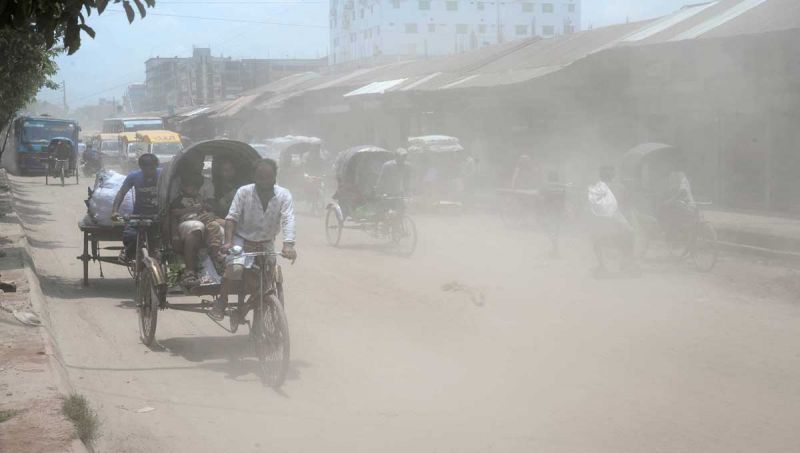- OIC Deeply Regrets UNSC Failure to Accept Palestine as UN Member |
- Retaliatory spiral in Middle East must end, says UN chief |
- Rakhine State once again becomes a battleground: UN HR Chief |
- No political case filed against BNP men: PM Hasina |
- Iran fires at attack drones near Isfahan air base, nuke site |
Dhaka's air quality 'moderate' Sunday morning

Air pollution on a Dhaka street.
Dhaka, Sept 25 -- Dhaka's air quality has been recorded 'moderate' on Sunday morning. With an air quality index (AQI) score of 74 at 9 am on Sunday, the metropolis ranked 14th in the list of world cities with the worst air quality.
An AQI between 50 and 100 is considered ‘moderate’. However, there may be a moderate health concern for people who are sensitive to air pollution.
The UAE’s Dubai, Indonesia’s Jakarta and China’s Wuhan occupied the first three spots in the list, with AQI scores of 158, 156 and 141, respectively.
An AQI between 101 and 200 is considered 'unhealthy', particularly for sensitive groups.
Similarly, an AQI between 201 and 300 is said to be 'poor', while a reading of 301 to 400 is considered 'hazardous', posing serious health risks to residents.
In Bangladesh, the AQI is based on five criteria pollutants -- Particulate Matter (PM10 and PM2.5), NO2, CO, SO2 and Ozone.
Dhaka has long been grappling with air pollution issues. Its air quality usually turns unhealthy in winter and improves during the monsoon.
Air pollution consistently ranks among the top risk factors for death and disability worldwide. Breathing polluted air has long been recognised as increasing a person’s chances of developing a heart disease, chronic respiratory diseases, lung infections and cancer, according to several studies.
As per the World Health Organization (WHO), air pollution kills an estimated seven million people worldwide every year, largely as a result of increased mortality from stroke, heart disease, chronic obstructive pulmonary disease, lung cancer and acute respiratory infections. - UNB

